The partners of the Liberal Arts Collaborative for Digital Innovation represent the highest standard of student-centered education. Through our collaborations, we are exploring the future of teaching and learning in a networked world to support our mission as residential liberal arts institutions.
Author: LACOL
LACOL Collaboration Incubator

LACOL offers a framework to support collaboration, including kick-start funding opportunities for multi-campus projects. To browse opportunities, select or scroll through the posts below. We invite your questions, suggestions, and participation!
LACOL Projects
- QLAB / Q-bits Framework for Quantitative Skills Modules
- CHIANTI – Shared Grammar Resource
- Course Sharing for Self-Instructional Language Learning (SILP)
- Upper Level Math & Stats Course Exchange
- Inclusive Pedagogies
- Language Skills Map & Dashboard
Ideas and Opportunities in the Pipeline
- Bayesian Statistics – Shared Course Opportunity, Spring 2022
- LACOL Digitally Shared Offerings
- Bryn Mawr’s Blended Learning in the Liberal Arts – CFP is Open!
- Operations Research – Shared Course Opportunity, Spring 2020
- Data Science in the Liberal Arts Workshop (June 2019)
- Introduction to Data Science (shared course)
- Sensemaker Team Data Review – April 4 at Amherst College
- Measuring Complex Domains for the Liberal Arts
- LACOL Collaboration Incubator
- Digital Competencies / Digital Fluency Community of Practice
Read More

Working Group on Effective Teaching and Learning
LACOL’s Effective Teaching and Learning Working Group explores creative online and blended pedagogies for liberal arts teaching and learning.
Activities and Interests of this group include:
- Study group on emerging pedagogies for liberal arts teaching and learning
- Exploration of online and blended approaches relevant to our mission as residential liberal arts colleges
- Matchmaking for inter-campus collaboration
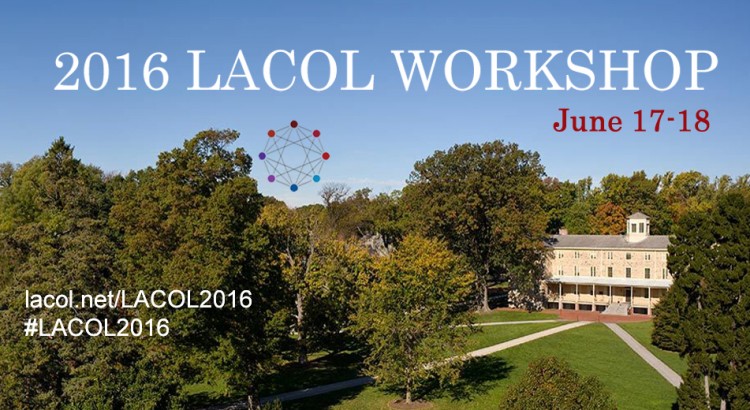
Consortium-wide Workshop, June 17-18, 2016
LACOL hosted a Consortium-wide workshop on June 17-18, 2016 on the campus of Haverford College. Browse the posts on this page for details on the program, videos and workshop resources.
Workshop Information:
| Full conference schedule: View Program Workshop Attendees: Contact List2016 Workshop Materials
Collaboration Tools and Documents |
|---|
Workshop Themes:
1. The Consortium as incubator for learning research and effective pedagogies
2. Student perspectives on digital approaches and online/blended learning
3. From high school to college; preparing and supporting our students
4. Techniques and tools for collaboration, how can we work together?
5. LACOL working groups – team meetings and presentations
Keynote Speaker:
Dr. Candace Thille on The Science of Learning, Technology, and Student Success in Liberal Education
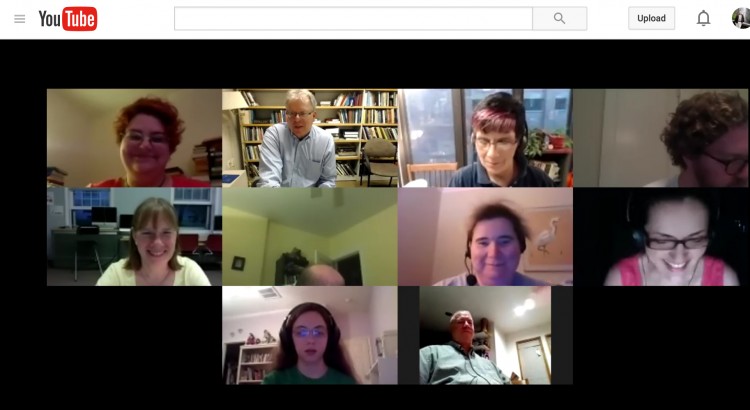
Swarthmore professor extends his Latin classroom far beyond the boundaries of campus
A creative Latin professor at Swarthmore College has been using technology to extend informal learning beyond the boundaries of Swarthmore. For the last three summers, Prof. William Turpin has hosted a free, public, online course on Medieval Latin translation. He has been assisted by colleagues Bruce Venarde (University of Pittsburgh), Carin Ruff (Hill Museum & Manuscript Library) and Jen Faulkner (East Longmeadow High School, MA), who helped him to facilitate the weekly sessions. According to Prof. Turpin:
The intention of this course is to replicate to the extent possible the experience of a student in (say) a college Latin class at the early intermediate level, minus the quizzes, tests, and continuing assessment, there is no mechanism for awarding credit or certificates of attendance. The most immediate model, in fact, may be an informal reading group devoted to a particular ancient or medieval text. The basic premise is that a small community of interested participants can both encourage and enhance what is essentially a private encounter with a text.

LACOL Engaged and Active Reading Workshop at Vassar College
In November 2014, LACOL sponsored a two-day conference at Vassar College titled “Engaged and Active Reading.” LACOL faculty and staff gathered to consider how reading may be changing in a digital age, and the implications for teaching and learning in the liberal arts.
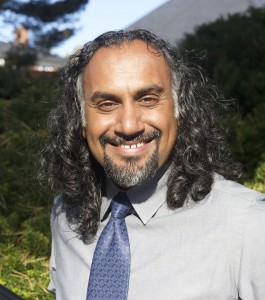
Session topics included:
- A keynote talk entitled The Attentive Reader (and Other Mythical Beasts) from Alan Jacob, Baylor University Distinguished Professor of the Humanities
- Reading on our campuses, where are our students?
- Pedagogies for Engaged and Active Reading
- Technologies for Engaged and Active Reading
- Brainstorming on cross-campus collaborative reading, annotation, and curricular development projects, course modules, or models .
Workshop discussion explored various ways to promote a robust “culture of engaged reading” for the liberal arts through practice and course assignments. While online life can contribute to distraction, there are also interesting new pedagogies for engaging with text with digital tools. Several of the workshop participants are also active in LACOL’s Active Reading Working Group which continues to explore these questions more deeply through collaboration.
Read More
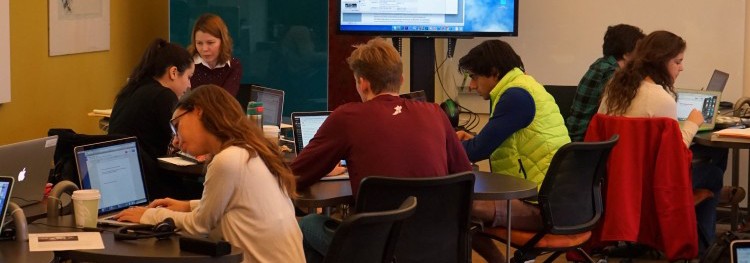
Building a Borderless Class at Swarthmore College

At Swarthmore College, Associate Provost and Professor of German and Film and Media Studies Sunka Simon and Associate Professor of French Carina Yervasi, collaborated with Ashesi University Professor Mikelle Antoine to create an interactive online course that examines questions of nationality, globalization, race and ethnicity, and gender and sexuality through the lens of global diasporic communities. Using a “globally-networked learning environment,” the course entitled Re-Envisioning Diasporas was the first synchronous, hybrid course taught between Swarthmore College and Ashesi University in Ghana. The classes worked in joint video-conferenced sessions twice a week to explore how displaced peoples worldwide address these challenging questions while living in a perpetual state of “elsewhere.”
Simon and Yervasi recently co-authored an article about their experience with building a borderless class which appears in the new volume, Globally Networked Teaching in the Humanities: Theories and Practices, co-edited by Simon. Participants from both continents shared their reflections on the course experience. Yervasi notes:
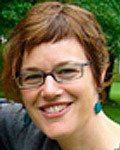
What I’m discovering is that our model of learning is very different from the traditional model of distance learning. Our model is collaborative; it’s not student-professor online learning where the students are interacting with just the professor. [ … ] The students have to write and interact with each other. We’ve used writing, blogs, forums, Youtube, Skype and VoiceThread … I like that we’re using these technologies to connect in new ways.
Plans are in progress to offer an updated version of the course next year. With a grant from SUNY COIL, the team is supported by course designer Michael Jones, director of the Swarthmore Language Resource Center, who manages the technology resources that keep the groups in close contact. Both Simon and Jones are actively involved with LACOL’s Language Instruction Working Group. Read More
Students discuss their experiences with lecture capture at Haverford College
Have students ever come to your office hours confused about the material because they did not quite understand a concept discussed or may have written something incorrectly while trying to take notes and listen at the same time? This situation is what led Fran Blase (Provost & Associate Professor of Chemistry) to apply for a Haverford Teaching with Technology grant in 2011. She received the grant and worked with Haverford’s IITS team to implement Panopto (lecture capture system) in her classes.

This short video shows the experiences of three Haverford students who are taking classes that use lecture capture.
Recorded lectures can be beneficial to students with diverse needs. Some students need notetakers, some want to review materials later, and some miss class. Think about the Universal Design for Learning (UDL).
Read More
Vassar’s Ben Ho on games for teaching Economics
In this clip, Ben Ho, Associate Professor of Economics at Vassar College, shares his thoughts on economic motivations, learning theory and the use of games to teach economics as part of a liberal arts curriculum. Prof. Ho is a behavioral economist who uses economic tools like game theory and experiments to understand social systems such as apologies, identity signaling, and climate concerns. This talk was part of a series of conversations on innovative use of digital and online approaches for teaching and learning at the 2014 consortium-wide workshop held at Pomona College.
Prof. Ben Ho discusses games for teaching economics
Ho sees students responding very positively to the use of games for class, and this is reflected in their learning. He says:
I have always considered classroom games an essential part of my pedagogy. It gives students a way to fully engage in strategic thinking. Games like MobLab greatly simplify the task of implementing games in class, its highly polished presentation impresses students, and has been the most positively commented upon change to my teaching, with lots of unsolicited positive feedback both after class and in course evaluations.
Video conferencing enhances student learning in advanced Japanese at Pomona College
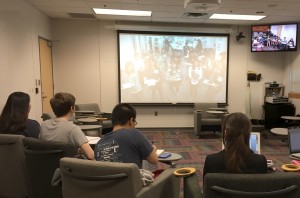
Kyoko Kurita, in Asian Languages and Literatures at Pomona College, has been using video conferencing technology as a regular part of her language and cultural education curriculum since 2004 in her advanced-level Japanese classes. She calls a video conference “90-minute study abroad,” and conducts one or two video conference each semester.
According to Professor Kurita:
A video conference is a 90-minute study-abroad. But it goes beyond that. Even as the ubiquity of the internet reinforces the global linguistic dominance of English, it enables us to learn from other ways of approaching life. Three million people are currently studying Japanese in educational institutions worldwide. So Japanese, also, can be a tool for international communication.”
Dr. Randy Bass speaks at Carleton about a future design for learning
In the fall of 2015, Carleton College’s Learning and Teaching Center and Information Technology Services hosted Randy Bass, Georgetown’s Vice Provost for Education, and a leading thinker on innovation in higher education. In this clip from his campus talk, Dr. Bass invites faculty to look proactively and efficiently at the evolving Liberal Arts landscape.
According to Bass:
One of the most important things for any institution, especially ones that know that their survival isn’t threatened by the changes in the ecosystem, is to try to be a model of reinvention, to try to reimagine what it is that we most deeply value that is now existing in the world. The most important design question to ask is what kind of experimentation does an institution need to do so that institution can live fully in its time.
Carleton’s President Poskanzer speaks about LACOL’s founding goals and vision
In June 2014, LACOL held its first consortium-wide workshop. Teams of faculty, librarians and academic technologists from all eight LACOL colleges gathered together on the Pomona College campus to share ideas and explore collaborative experiments in online and hybrid approaches to teaching and learning for the liberal arts. In this clip, President Steven G. Poskanzer of Carleton College welcomes the group, and shares his thoughts on LACOL’s promise.
President Steve Poskanzer of Carleton College welcomes workshop participants
Founding Co-Directors Bryan Penprase and Andrea Nixon reflect on LACOL’s charge
At the June 2014 Consoritium-wide workshop held at Pomona College, LACOL’s founding co-Directors welcome teams to the Plenary session, and speak about the role the Consortium can play in supporting the future of effective teaching and learning on our residential liberal arts campuses.
Plenary Session
Dr. Andrea Nixon, Director of Educational Research at Carleton College and founding Co-Director of LACOL
About Carleton College
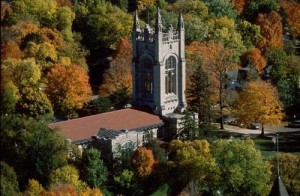 Founded in 1866, Carleton College is a small, private liberal arts college in the historic river town of Northfield, Minnesota. Best known for its academic excellence and warm, welcoming campus community, Carleton offers 37 majors and 15 concentrations in the arts, humanities, natural sciences, and social sciences.
Founded in 1866, Carleton College is a small, private liberal arts college in the historic river town of Northfield, Minnesota. Best known for its academic excellence and warm, welcoming campus community, Carleton offers 37 majors and 15 concentrations in the arts, humanities, natural sciences, and social sciences.
Carleton College is committed to providing a true liberal arts education, a curriculum that challenges our students to learn broadly and think deeply. Instead of training for one narrow career path, Carleton students develop the knowledge and skills to succeed in any walk of life.
Read More
About Haverford College
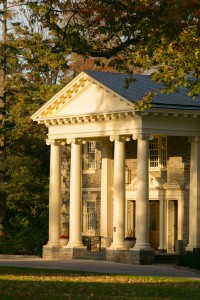 Haverford is one of America’s leading liberal arts colleges, a close-knit intellectual community that combines the Quaker values of dignity, tolerance and respect with a rigorous academic program.
Haverford is one of America’s leading liberal arts colleges, a close-knit intellectual community that combines the Quaker values of dignity, tolerance and respect with a rigorous academic program.
The Campus
Our serene campus, located just outside Philadelphia, is a beautiful and stimulating environment:
- 200 acres of award-winning architecture and landscaping
- more than 50 academic, athletic and residential buildings
- a nationally recognized arboretum with 400 species of trees and shrubs, a 3.5-acre duck pond, gardens and wooded areas.
- Recent campus additions include The Marian E. Koshland Integrated Natural Sciences Center and The Douglas B. Gardner ’83 Integrated Athletic Center and two new student residences: Kim Hall and Tritton Hall.
About Amherst College
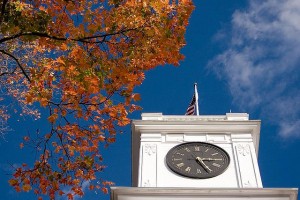 Since its founding in 1821, Amherst College has become one of the premier liberal arts colleges in the nation, enrolling some 1,800 talented, energetic and diverse young men and women. This section of the site provides a general introduction to the college.
Since its founding in 1821, Amherst College has become one of the premier liberal arts colleges in the nation, enrolling some 1,800 talented, energetic and diverse young men and women. This section of the site provides a general introduction to the college.
Amherst College is located in Amherst, Massachusetts, a town of 35,000 people in the western part of the state. The college’s 1,000-acre campus is adjacent to downtown Amherst.
Amherst College educates men and women of exceptional potential from all backgrounds so that they may seek, value, and advance knowledge, engage the world around them, and lead principled lives of consequence.
Amherst brings together the most promising students, whatever their financial need, in order to promote diversity of experience and ideas within a purposefully small residential community. Working with faculty, staff, and administrators dedicated to intellectual freedom and the highest standards of instruction in the liberal arts, Amherst undergraduates assume substantial responsibility for undertaking inquiry and for shaping their education within and beyond the curriculum.



